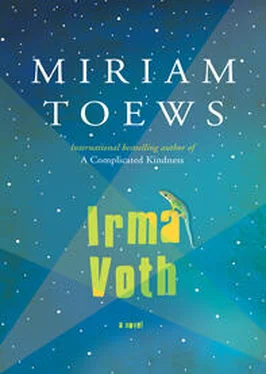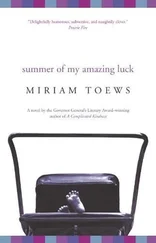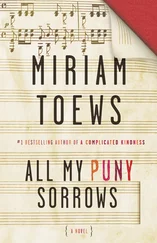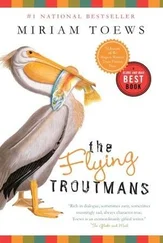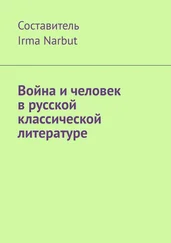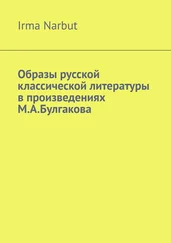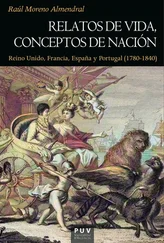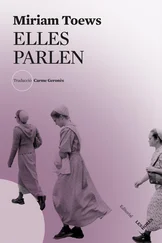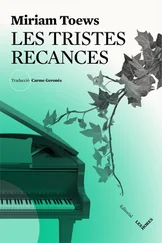Okay, I said. No. We’re not selling cheese.
I just thought you might be selling cheese, he said, because of the way you’re dressed. I thought you were vendequesos .
Not all Mennonites sell cheese, I said.
Well, I know that must be true, he said.
We walked for blocks towards the Zócalo, taking turns carrying Ximena. It was loud. There were people everywhere. It was getting dark. We stopped at a farmacia along the way and bought more baby formula, bottled water, pads, toothpaste, toothbrushes, diapers, notebooks, pens, a package of three boy’s sleepers (part of her disguise) and a primitive stacking toy for Ximena that Aggie insisted on buying even though I told her she was too young to appreciate it. Then we stopped in a clothing store and bought jeans, T-shirts and hooded sweatshirts for warmth and style, according to the clerk. Even so, we still looked like idiots. We looked at each other and laughed our heads off. We left the store self-consciously, a little shy, like astronauts stepping out onto the moon. Somebody will rescue us, I thought. Somebody will notice we’re missing and come and find us and bring us back home and be so happy that they found us unharmed and healthy. That might not happen, was my next thought. Then the third and final thought in this dumb trilogy was: Well. Okay. There was more sub-thought to that one but essentially I had made a decision. There was a sidewalk kiosk that sold knives and strollers so we bought one of each of those for protection and comfort, although Ximena was too small really for a stroller so we used it for our stuff and I tied her tightly to my chest with my old dress, and kept on walking towards the Zócalo with ridiculous grins on our faces in spite of being almost completely broke now and having no discernible future.
THE THREE OF US STOOD IN AWE at the edge of the Zócalo. I didn’t know what to compare it to. Maybe a very large field of corn, every stalk a human being, or a desert night sky packed with stars, or a page in a notebook where every available space is filled with ink, words, letters and parts of letters.
C’mon, I said.
Where to? said Aggie.
Just follow me, I said.
What are we doing? she said.
I don’t know, I said. Protesting.
Protesting what? she said.
I don’t really know, I said.
It seems like we’re just walking, said Aggie.
We sat down finally so that I could make another bottle for Ximena who had woken up starving and livid and with contempt for all she saw.
She’s clawing out her eyes again, said Aggie.
Don’t let her, I said.
Next to us was a group of young men and women banging on pots and pans and dancing and laughing and poking playfully at each other while they attempted to unravel some kind of banner with blood-red lettering. We stared at them. One of them yelled something incomprehensible into a bullhorn and the rest of them continued to dance around. Ximena was going nuts and Aggie was jiggling her a bit trying to calm her down while I prepared the bottle. The young men and women next to us started talking about the meaning of some English words.
The words plangent and trenchant , said one of the guys, they mean different things.
I’ve never heard of either one of them, said one of the girls. I think you’re full of shit.
No, no, said the guy. One means incisive and one means sad or maybe reverberating but I just use them to mean HA HA.
The girl laughed again and Aggie and I looked at each other, confused. I thought the boy was in love with the girl. She mocked him and kissed him and laughed at him and jumped on his back. We continued staring. She reminded me of Katie and I wanted to say that to Aggie. I wanted to describe to her the way Katie rebelled, with jokes and smiles and affection and with some kind of tragically naive understanding that it would all be fine and even fun and definitely, ultimately, forgivable. But how do you talk about that?
Power was stolen in this case, said one of the guys.
Power is always stolen, said the girl. Again a huge grin on her face and kisses for everyone.
Here, feed her, I said to Aggie. I had finished making the bottle. I wanted to observe these people and make notes in my notebook.
No, you do it, said Aggie. I don’t want her to throw up on me.
Use my old dress as a shield, I said.
No! I’m not gonna sit here draped in that ugly thing, she said. I’m going to look at stuff.
She started to walk away and I told her not to wander too far and to come back in twenty minutes. She waggled her ass at me. She didn’t look back. She looked like a normal girl in those jeans and sweatshirt. I watched her walk in the direction of the National Palace, the place the seven Mennonite men came to a long time ago with grim hopes of making a land deal. I imagined her going in and saying hey! El Presidente! Time for a new deal! I fed Ximena. We looked deeply into each other’s eyes while she drank. I liked the heavy, warm weight of her in my arms. I kissed her forehead and the motion made her lose her grip on the nipple and she craned her head around to my breast, her mouth open and searching for the thing she’d lost.
The jokey girl came over and sat down beside me. The boys were kicking a tiny beanbag or something around in a circle trying to keep it from falling to the ground. The girl told me she had noticed the three of us and was wondering where we came from. I was going to say Canada, but I said Chihuahua, the truth. She asked me if we had come to Mexico City for the protest and I said no, not exactly.
Are you tourists? she said.
No, not really, I said.
Have you been to Mexico City before? she said.
No.
There’s a ruined temple beneath us, she said.
There is? I said.
It was once used for Aztec worship and human sacrifice, she said. She stroked Ximena’s cheek with the side of her finger and made the sound we use to ward off rattlesnakes in the desert. Ximena stopped sucking on the bottle and stared at her.
Spanish conquistadors used bricks from the temple to help build their own capital, she said.
I nodded and smiled. They were like that, she said. Can I hold her?
Of course! I said. I handed Ximena over to the girl. I pointed at the enormous Mexican flag in the centre of the Zócalo.
I’ve never seen a flag that big before, I said.
Me neither, said the girl. She sang a Spanish song to Ximena who was eerily quiet and a little dumbstruck. Her tiny mouth was wide open like she’d forgotten there wasn’t a nipple still inside it and she seemed unable to blink.
What’s your name? I asked the girl.
Noehmi, said the girl. What’s yours?
Irma Voth, I said. She’s Ximena. And my sister Aggie is here somewhere.
Cool, said the girl.
Noehmi is showing Ximena to her friends. They’re all crowded around her. They’re taking turns holding her. Aggie hasn’t come back from looking at stuff yet. When I took out my notebook Noehmi asked me if I was a reporter and I didn’t know what to say so I smiled. So, you are? she said. No, I said. I don’t think so. But you’re writing things down in a notebook, she said. Why? I told her I wasn’t sure. I told her I was making lists of the things I needed to do. Then I put the notebook away into the pocket of my new hoodie because I was embarrassed. Then, when Noehmi started to show Ximena around to her friends, I took it out again. I love my new notebook. I love the sound my new pen makes on the paper and the thickness of the pages. It terrifies me. There’s so much to write about but I don’t know where to start. I miss my mother. I wish I had something nerve-shattering to say. If trenchant and plangent mean HA HA then what’s the point of any word? Just begin, I think. I have to find Aggie now.
Читать дальше
